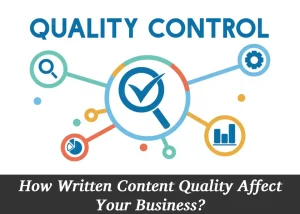As a blogger, you must have heard the term SEO or Search Engine Optimization. SEO is a set of techniques that help you optimize your content to reach higher rankings in search engine results pages. It is an important part of blogging and having knowledge of the essential SEO terms can help you create better content and reach more people. In this article, I will be discussing the essential SEO terms that every blogger should know.
Introduction – What are SEO Terms?
SEO terms are the terminology used to describe the various aspects of optimizing content to reach higher rankings in search engine results pages. These terms are used by search engine optimization professionals to communicate with each other and understand the various aspects of SEO. Knowing these terms is essential for any blogger who wants to get the most out of their blog.
The first step to understanding SEO is to learn the basic terminology. These are the terms that are used most often when discussing how to optimize content for search engines. The most common terms are: keyword research, on-page SEO, off-page SEO, meta tags, canonicalization, image optimization, link building, schema markup, structured data, mobile SEO, and local SEO.
Keyword Research
In SEO, keyword research is the process of finding and analyzing the words and phrases that people use to search for information related to your blog topic. By understanding the keywords that people are using to search for information, you can create content that is more likely to be seen by potential readers.
Keyword research involves creating a list of keywords that are most likely to be used by people searching for information related to your blog topic. You can use tools such as Google Adwords to find popular keywords related to your topic. Once you have a list of keywords, you can use them to optimize your content for search engines.
On-Page SEO
On-page SEO refers to the techniques used to optimize webpages for higher rankings in search engine results pages. This includes optimizing the content, HTML, and other elements of a webpage for search engine algorithms. On-page SEO techniques include using keywords in the title, content, headings, and meta tags; optimizing images; and using internal links. All of these techniques can help your webpage to rank higher in search engine results pages.
Off-Page SEO
Off-page SEO refers to the techniques used to optimize webpages for higher rankings in search engine results pages. This includes link building, creating content for other websites, and participating in social media campaigns. By building links to your webpage and increasing its visibility on the web, you can improve your rankings in search engine results pages.
Meta tags
Meta tags are HTML tags that are used to describe a webpage. Meta tags can include the page title, meta description, and keywords. These tags are used by search engines to understand the content of a webpage and can help it to rank higher in search engine results pages.
Canonicalization
Canonicalization is the process of ensuring that all versions of a webpage point to the same URL. This process helps to ensure that search engines are able to recognize the most relevant version of a webpage and can help your webpage to rank higher in search engine results pages.
Image Optimization
Image optimization is the process of optimizing images for search engines. This includes using keywords in the file names and alt tags, optimizing the size of the image, and using text around the image. Optimizing images can help your webpage to rank higher in search engine results pages.
Link Building
Link building is the process of creating links from other websites to your webpage. This helps to increase the visibility of your webpage and can help it to rank higher in search engine results pages. Link building techniques include creating content for other websites, participating in guest blogging programs, and creating social media campaigns.
Schema Markup
Schema markup is a type of structured data that is used to describe the content of a webpage. This markup helps search engines to understand the content of a webpage and can help your webpage to rank higher in search engine results pages.
Structured Data
Structured data is a type of data that is used to describe the content of a webpage. This data helps search engines to understand the content of a webpage and can help your webpage to rank higher in search engine results pages. Structured data can be used to describe the page title, meta description, images, videos, and other elements of a webpage.
Mobile SEO
Mobile SEO is the process of optimizing webpages for mobile devices. This includes optimizing the content, HTML, and other elements of a webpage for mobile devices. Mobile SEO techniques include using responsive design, creating mobile-friendly content, and using keywords in the title, content, headings, and meta tags.
Local SEO
Local SEO is the process of optimizing webpages for local search results. This includes optimizing the content, HTML, and other elements of a webpage for local search engines. Local SEO techniques include using local keywords, creating content for local websites, and optimizing for local directories.
Conclusion
SEO is an important part of blogging and having knowledge of the essential SEO terms can help you create better content and reach more people. In this article, I have discussed the essential SEO terms that every blogger should know. These include keyword research, on-page SEO, off-page SEO, meta tags, canonicalization, image optimization, link building, schema markup, structured data, mobile SEO, and local SEO. Knowing these terms can help you to optimize your content for search engines and reach a wider audience.
As a blogger, it is important to understand the essential SEO terms. By doing so, you can create content that is more likely to be seen by potential readers and optimize your content for higher rankings in search engine results pages. If you want to get the most out of your blog, then learning these SEO terms is essential.
So, if you’re a blogger and want to take your blog to the next level, then make sure to learn the essential SEO terms. With the right knowledge and techniques, you can optimize your content for higher rankings in search engine results pages and reach more people.
The best way to do this is to use the primary keyword, “SEO terms for bloggers”, and the secondary keywords throughout the BLOG ARTICLE. Doing this will help you to optimize your content and reach more people. So, what are you waiting for? Start optimizing your content today!




